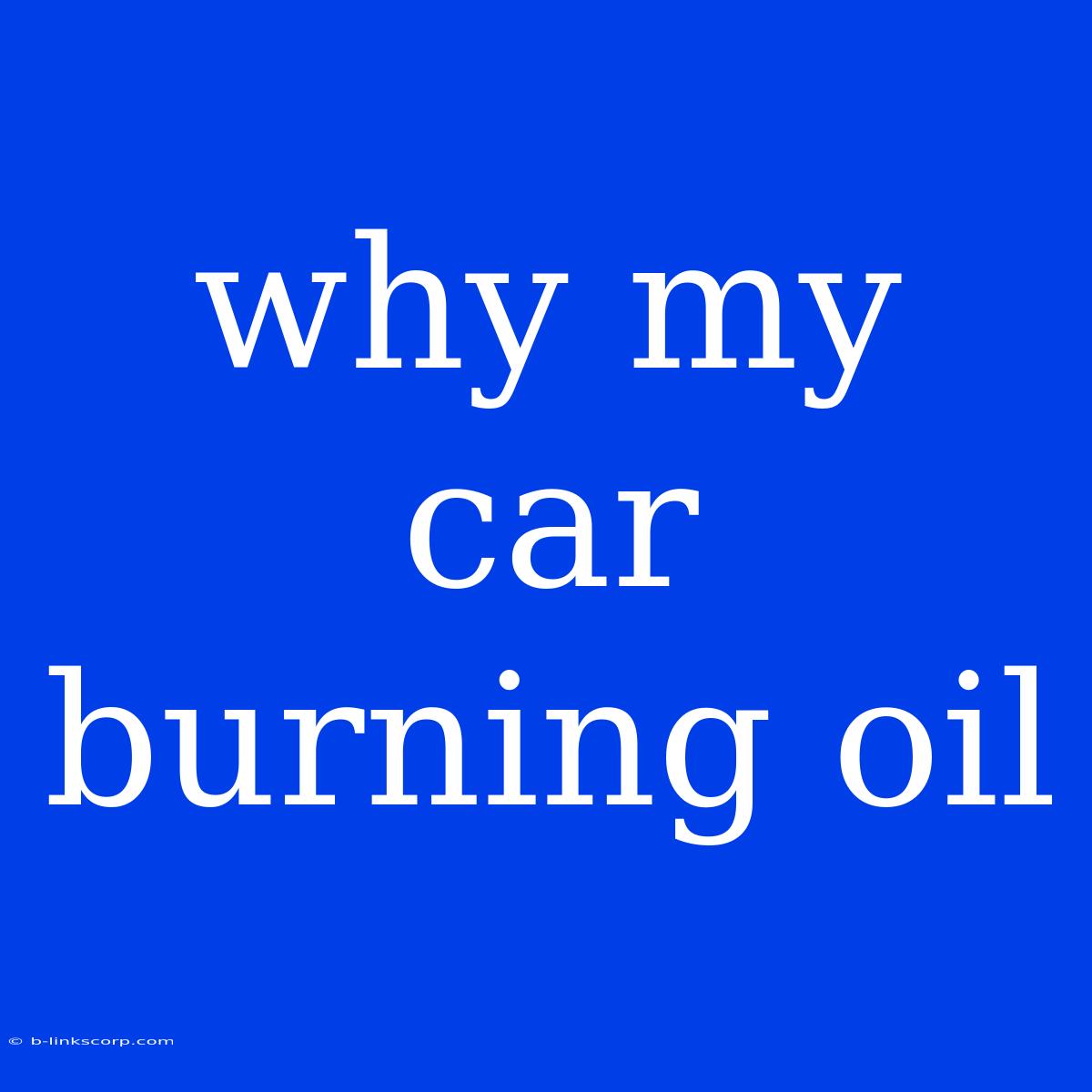Why Is My Car Burning Oil?
It’s a dreaded sight – blue smoke billowing from your car’s exhaust, a telltale sign that your engine is consuming oil. While it might seem like a minor inconvenience, burning oil can signal serious problems that can quickly escalate and damage your engine. Understanding the causes can help you address the issue effectively.
Here are some of the most common reasons why your car might be burning oil:
1. Worn Piston Rings:
This is the most frequent culprit. Piston rings are responsible for creating a tight seal within the cylinders, preventing oil from escaping into the combustion chamber. Over time, these rings can wear down due to friction, heat, and carbon buildup, allowing oil to seep past and burn.
2. Worn Valve Stem Seals:
Valve stem seals prevent oil from leaking past the valve stem and entering the combustion chamber. As these seals age and wear down, they can lose their ability to effectively seal, leading to oil consumption.
3. Worn Cylinder Walls:
The cylinder walls house the pistons and provide a smooth surface for them to move up and down. Over time, the cylinder walls can wear down from friction and heat, resulting in gaps that allow oil to seep past the piston rings.
4. Blown Head Gasket:
The head gasket seals the combustion chamber from the cooling system. A blown head gasket can allow coolant to enter the combustion chamber, leading to oil contamination and burning.
5. PCV Valve Issues:
The Positive Crankcase Ventilation (PCV) valve regulates airflow within the crankcase, preventing oil vapor from escaping. A faulty PCV valve can restrict airflow, causing oil buildup and potential leakage into the combustion chamber.
6. Other Contributing Factors:
- Overfilling: Overfilling your engine with oil can lead to excessive oil consumption.
- High Mileage: Engines with high mileage are more susceptible to wear and tear, increasing the risk of oil burning.
- Aggressive Driving: Frequent hard acceleration and high engine speeds can contribute to wear and tear on engine components, increasing oil consumption.
Identifying the Cause:
- Oil Consumption: Keep a close eye on your oil level and note how quickly it's decreasing.
- Smoke: Blue smoke indicates oil burning, while white smoke suggests coolant leakage.
- Engine Performance: Burning oil can lead to decreased engine performance and power loss.
- Diagnosis: Consult a mechanic for a proper diagnosis and repair.
Addressing the Issue:
- Prompt Action: Early detection and intervention are key to preventing further damage and costly repairs.
- Professional Repair: Unless you have the experience and expertise, it's best to seek professional help to diagnose and repair the issue.
- Preventative Maintenance: Regular oil changes, proper engine maintenance, and avoiding aggressive driving can help prevent premature wear and tear.
Remember: Burning oil is a serious issue that should not be ignored. Prompt action can help prevent further damage and ensure the longevity of your vehicle.

